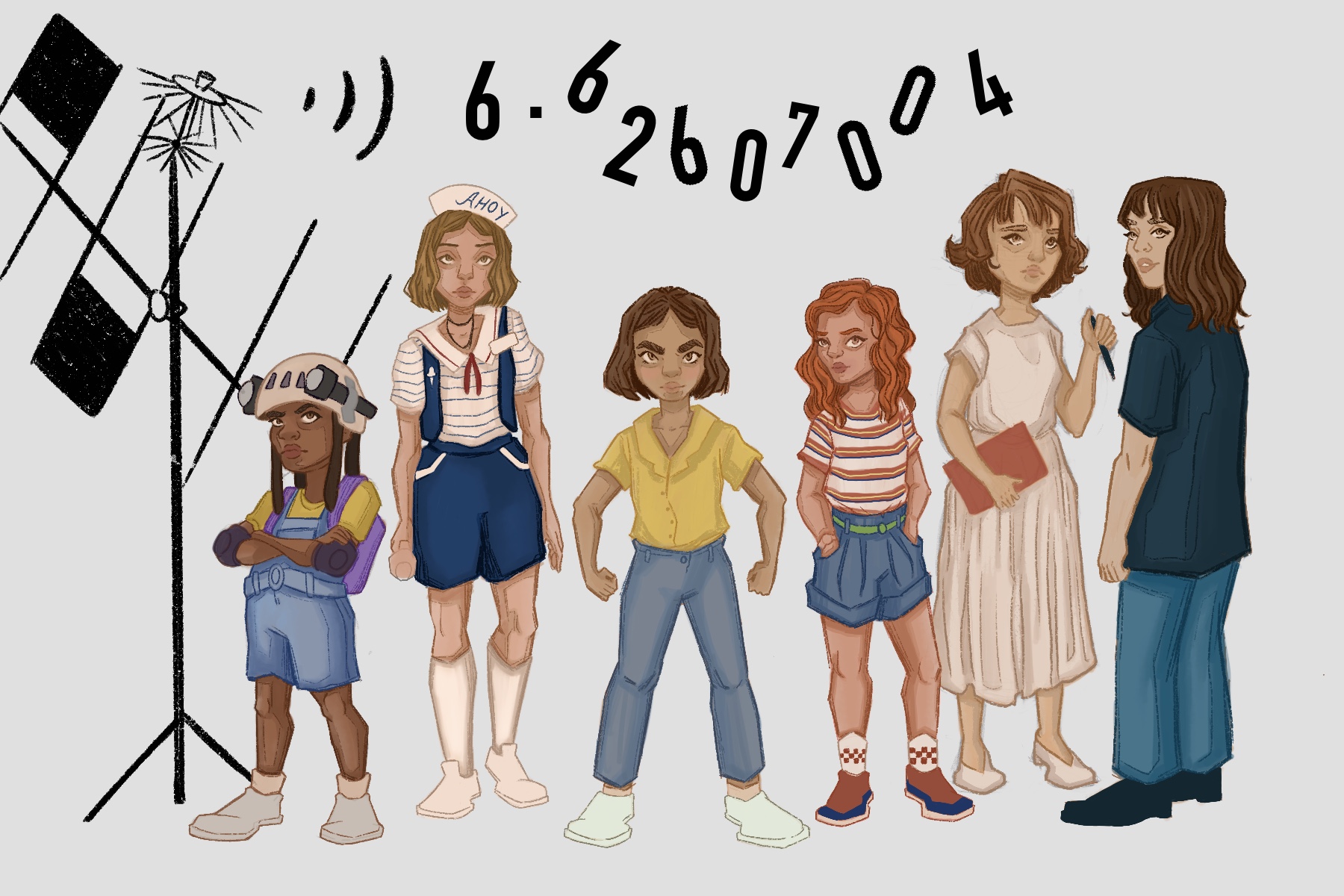[Contains spoilers from “Stranger Things 3”]
One of Netflix’s most popular originals has finally returned from its year-and-a-half break. “Stranger Things 3” hit the streaming platform on July 4 and fans are still buzzing about it.
While some fans had concerns with certain aspects of Season 3, many noted that the new installment of the show is starting to amp up its representation of its female characters. Here’s how “Stranger Things 3” is letting its leading ladies shine.
Eleven is becoming her own person
With Eleven (Millie Bobby Brown) finally settling in to a semi-normal life with her friends, it would have been easy for the writers to hinder some of her character development as a means to keep her guarded and mysterious.
Eleven’s powers continue to grow throughout the series and with greater strength comes greater danger for her and the gang. Now that she’s becoming more acclimated to normal “teenagerdom,” she’s also learning her own strengths and weaknesses in her own time. Giving her autonomy over her own powers and limits was very necessary for her development.
While Eleven and her powers are the main aid in planning to defeat the Mind Flayer, she is continually treated like a human being instead of a human weapon. The other characters are more sensitive to her feelings and boundaries. This is a massive step in humanizing her, especially compared to Season 1 when they were much more invasive. Even though there were some times where other people thought they knew what was best for her (ahem … Hopper and Mike), they eventually let her make her own decisions. As if that was going to stop her anyway.
El and Max = Friend Goals
While the development of Max (Sadie Sink) and Eleven as individual characters is important, their blossoming friendship is also crucial to their growth, both as friends and as their own beings. Being able to coexist in what mainly seems like a “boy’s club” is something many fans were desperately hoping for after the unnecessary tension between the two in the second season.
Not only do they become adorable friends, but Max encourages El to inspire her own confidence instead of relying on other people for it. She stands up for El when she isn’t around out of sheer loyalty to their new friendship. Instead of morphing into a Max 2.0 of sorts, El is motivated to become her own person and find her own self-expression while Max stays true to herself.
Although I do wish Max had been able to grow on her own this season instead of always being in a scene with someone else, I’m glad that the writers squashed her and El’s beef and started to show more camaraderie between them. Having the two exist independent from each other while also leaning on each other for support sometimes is an extremely refreshing way to portray female friendship instead of turning them against each other.
Robin: robbin’ the hearts of millions of fans
Reviewing “Stranger Things 3” wouldn’t be complete without gushing over Robin (Maya Hawke). She seems like a classic addition to the lineup of main characters — sassy, sarcastic and wicked smart. Many were shocked when she came out as gay after Steve confesses his feelings for her, but I think it was a necessary moment for her and the direction of others in the show.
It would have been far too cliché for Robin and Steve to have the played out vaguely-flirty-but-we-pretend-like-we-hate-each-other relationship and end up dating. Robin being able to exist as her own character and not turn into the girlfriend in the end is huge for independent women, and it’s about time the show had some main LGBTQ+ representation.
Regardless of her sexuality, Robin is an important character in the grand scheme of “Stranger Things 3.” She’s ultimately the reason they find the Russian base under the mall after she cracks the radio code, and her quick thinking helps the rest of the group navigate throughout the base. Even while she and Steve are high on the serum the Russians inject them with, Robin has some of her best and most real moments. Having a lesbian woman who’s also smart and compassionate instead of being a static token gay character is one of the best decisions the writers of the show have made in a long time.
You can’t spell “America” without “Erica”
The second season had some amusing glimpses into the character of Erica (Priah Ferguson), and fans were pleased to see that she had a bigger role in “Stranger Things 3.” Even though she’s the little sister of Lucas, her involvement was generally independent from his, other than a few moments where they butt heads in a way that only siblings do.
We don’t know much about Erica’s personality aside from being the typical annoying younger sibling until Steve, Dustin and Robin recruit her in aiding their mission to find the Russian base in the mall. She becomes a critical asset to the group when Steve and Robin are drugged, and she turns out to be much more intelligent than some of the other characters gave her credit for. Not only is she extremely smart, but she is witty and hilarious, and is an addition to the main cast that many fans are looking forward to more of in the next season.
She protects, she attacks, but most importantly, she investigates rats
Natalia Dyer’s Nancy is another character that has come a long way since the first season. Originally somewhat bland and a terribly bad friend (#JusticeforBarb), Nancy has grown into a self-assured legend who lots of fans now adore. Sadly, even the most headstrong women can still be subject to workplace harassment, which is what drives most of Nancy’s personal storyline in “Stranger Things 3.”
Even though she is ridiculed and demeaned by the men at the paper she works at, Nancy sticks to her guns when she finds a news lead she wants to pursue. Although it’s a little frustrating that even Jonathan is hesitant to help her at first, I’m glad that she stays confident enough to follow her intuition even after she gets fired. Not to mention that her hunch ends up being mostly correct and her investigation is an immense help to piecing together what’s happening with the Mind Flayer.
Joyce Byers: Certified Bad—s
A recurring theme this season is women having strong intuition and not backing down from it, even when the men tell them there’s nothing to worry about. Joyce (Winona Ryder) is one of my favorite characters because she has stayed true to her gut every season. She doesn’t care that Hopper (David Harbour) thinks her magnet theory is just a coincidence; she knows something is wrong and fights to fix it. Joyce could have easily been written as an overly worrisome helicopter-mom like a lot of popular TV tropes, but it would have been a crime to let Ryder’s talent go to waste by letting that happen.
Other than her son Will, Joyce has probably gone through the most of any character since the beginning. She nearly lost Will in the first season, had to watch Bob be killed last season and had to stand by as Hopper died this season (whether or not he’s actually dead is another story). She has every reason to act out if she wanted to, but through it all she remains tough, loving and loyal.
Joyce has yet to back down from a fight, no matter how unmatched she might seem. She is always diving headfirst into the most dangerous situations, solely because she wants to help those she loves. Joyce is an amazing character that viewers can sympathize with through her various traumas and respect her for remaining strong and constantly fighting for what’s right.
Obviously, there’s still room for improvement to maximize the potential of the women on the show. Movies, shows and the people on them are rarely perfect, just like real humans, and making valid critiques is an important part to maintaining growth. Let’s hope that the “Stranger Things” team continues to strive to make its female characters the best they can be and building on the strong parts from Season 3.
















